- Home
- Roy J. Snell
Green Eyes Page 12
Green Eyes Read online
Page 12
"Ah, yes." The little French girl sighed. "I must try to feel it and seeit all as I felt and saw it, a small child in France."
"In half an hour we must go to the theatre," said Florence. "We will havea cup of tea, as we did sometimes when we were in our cabin."
"If only we were there now," sighed the little French girl. "Oh, why mustwe be ambitious? Why do we struggle so for success and yet more success,when peace awaits us in some quiet place?"
To this Florence found no answer. She rose to turn on the electric platefor tea, when the telephone rang.
She went to answer it. Petite Jeanne heard her answer the telephone, butpaid no attention to her conversation until she caught the word gypsy.Then she sat straight up.
"I must meet her to-night?" Florence was saying. "A gypsy woman? But thatis quite impossible.
"She is being taken to Canada to-night by the officials, you say? But howcan it be necessary for me to see a gypsy? I know no gypsies. Besides, Ican see no one to-night. Believe me--"
Her words were broken in upon by Petite Jeanne. "If it is a gypsy, youmust see her!" The little French girl was pulling at her arm impulsively."It is important. It must be. Besides, gypsies, they are my friends. Youmust remain here. I will go to the theatre alone."
One look at Petite Jeanne's tense face told Florence that she had nochoice in the matter.
"I will see her," she spoke into the telephone. "Send her over at once."
They drank their tea in silence. The night was too full of portent forwords.
"Gypsy?" Florence thought. "What can she want of me?"
Then she thought of those gypsies they had seen in the north country. Hadthey made their way to Chicago? That was not impossible. And if they had,what did this woman have to tell?
"Promise me one thing." Petite Jeanne suddenly leaned toward her. "Bringthat gypsy woman to the play. She is French. She knows the tarantella.She has known war, as it was in France. I will dance for her. She willunderstand."
"I promise," Florence replied solemnly.
The moment for Jeanne's departure arrived. Florence saw her carefullypacked into the car sent from the theatre, then she returned to her roomto wait.
With Jeanne gone, the place seemed strangely still. The clock tickedsolemnly. From somewhere in the distance a fire siren set up a mournfulwail.
"She is too much for me," she whispered, speaking of Jeanne. "Think ofher forcing me to remain here to meet a ragged gypsy, and this the nightof all nights. And then I must bring that strange person to her show herfirst night!"
A knock sounded at the door. She sprang up to open it. A man stood there,not a woman. For a moment she did not see the woman behind him in theshadows.
"I beg your pardon," said the man, "I am an immigration officer. Thiswoman and her companions entered our country without permission. We foundthem in the west side settlement. They must return to Canada. This womaninsisted upon seeing you." He pushed the short, brown woman into thelight.
Instantly the girl recognized her, and gasped. She was the mother of thebeautiful child that had so narrowly escaped drowning.
"You wished to see me?" she asked as soon as she gained possession of hervoice.
"Yes. You good. You kind. You not bad. Gypsy not forget. I must tell."
Mystified, Florence motioned her to a seat.
The tale the woman had to tell was a long one, and passing strange. Inher broken tongue, with many repetitions, it was long in the telling.
And all the time the clock was ticking away the moments. Petite Jeanne'sgreat hour approached.
CHAPTER XXXI PETITE JEANNE'S DARK HOUR
Petite Jeanne reached the theatre. She was quite alone. She entered atthe stage door unnoticed. A chill numbed her being as the shadowy hallwayleading to the dressing rooms engulfed her.
The past ten days, as she reviewed them now, seemed a bad dream.Rehearsals had been carried to the last degree of rigor. The director hadbeen tireless and exacting. On her return the physician had pronouncedher physically perfect; yet, at this moment her knees seemed ready tocave in beneath her.
"The first night!" she whispered to herself. How often, in the last fewdays, she had heard those words. Experienced actors who had known many"first nights" and many failures as well, spoke them in whispers.Inexperienced youngsters shouted them. As for Jeanne, no one had heardthese words fall from her lips.
"So much depends upon to-night," she told herself. "Success or failure.And who does not wish to succeed grandly?"
The curtain was down, the stage deserted, as she paused in the wingsbefore going to her dressing room, where Tico, curled up in a warmcorner, awaited her.
Many times she had stared up into the dark rows of empty seats as she didher dance. In her mind's eye she could see them even now. But now, too,she caught the rustle of programs. The seats were filling, filling withAmericans--to her the great unknown. In wild panic she fled to herdressing room.
The place was bare, barn-like. Only Tico greeted her. It was cruel thatFlorence could not be here now.
"But she will come," she assured herself, as a feeling of great hopesurged through her being. "They will be there in the audience, she andthe gypsy woman. I will see them. They will give me much courage."
As she changed to her stage costume, a great peace stole over her. Butthis was not for long.
The sound of the orchestra's opening number sent fresh chills up herspine. What was she to do? How could she find fresh courage for thishour? No answer came.
The curtain went up. Then, amid such a hush as she had never beforeexperienced, she tremblingly took her place on the stage. The scene was aFrench gypsy camp, for the play told of gypsy life during the World War.
Fortunately her part in the first act, also in the second, was small. Shesat unobtrusively beside the bear in her corner, or moved silently to theside of the ancient gypsy fortune teller.
The story of the gypsies during that war is a fascinating one. Theiryoung men volunteered. They died as bravely as any other true Frenchmen.The older ones, the women and children, wandered here, there, everywhere,enduring the suffering and privation that had fallen upon the land.
In the story of this play, at its beginning, like Cinderella, PetiteJeanne, a diminutive figure, was held in the background. Marie Condelli,a fascinating dark-eyed gypsy girl, dressed in many bright silk skirts,took the front of the stage. It was she for whom feasts were arranged,she with whom a great American officer fell madly in love on the very daybefore his heroic death on the battlefield, she who was the very darlingof gypsy camp and war camp alike.
One night, so the play ran in its second act, the two girls, thedark-eyed one and Petite Jeanne, sat at the feet of the fortune tellerwhen that aged person spread her arms wide as she cried:
"I see a vision. It is a battlefield. Many are dying. A great officer iswounded. He falls. He is a father. She, his child, comes to him. It is agirl, a young woman. She bends over him. I see her face. Now I do not seeit. But yes. It is Marie. No, it is little Jeanne. No! No! It is one.Which is it? My God, the vision is gone!" She falls to the earth in aspasm. When she comes to herself, the two girls implore her to tell themthe truth. Had she seen one? Had it been the other? For both Marie andPetite Jeanne had been brought up like orphans in the gypsy camp. It hadbeen rumored that one of these was stolen as a babe from a great Frenchfamily. But which? No one knew.
Such is the story of that drama up to the great third act in which PetiteJeanne was to emerge from her obscurity and play an important role.
One fact we have not mentioned. Early in this play, it is revealed thatPetite Jeanne's gypsy lover has gone to war, and is believed to have beenkilled.
All during the first act, and again through the second, Jeanne's eyesstrayed to one spot, to the seats that had been allotted to Florence andany friend she might care to bring. Always the seats were unoccupied. Ateach fresh disappointment her despair deepened.
"Will they no
t come?" she asked herself over and over. "They must! They_must_!"
CHAPTER XXXII PETITE JEANNE'S TRIUMPH
The tale the gypsy woman had to tell was as astonishing as it wasfascinating. As we have said, told in her halting speech, it was long.Florence's face showed her consternation as she looked at her watch whenit was done.
"Come!" she cried, seizing the woman's arm. "We must go to the theatre atonce! We will miss some. We must not miss all. It is the first bignight."
She started and all but screamed as a man loomed before her. The officer!She had quite forgotten him.
"No tricks!" he warned. "She must start for Canada to-night."
"But she must go with me first." Florence was quick in recovery.
"No tricks," he repeated.
"None at all. You may go with us. Only--" she hesitated, "we have but twoseats."
The man bent a steady look upon her. "You look all right. I'll meet youat the box office after the show."
"Oh, thank--thanks! But we must rush!" Florence was halfway out of thedoor.
Down the stairs they raced, then round the corner to a taxi stand.
Only once they paused before reaching the theatre. Leaping from the taxi,Florence dashed into a telegraph office. There she sent the followingmessage to Sun-Tan Tillie at her home in the north woods:
"_Bring the trunk at once. Your expenses will be paid._"
On returning to the taxi, she murmured, more to herself than to the gypsywoman:
"So they were in that trunk all the time! How perfectly marvelous!"
A moment later the taxi came to a grinding stop before the theatre. Herethey were, at last.
* * * * * * * *
At that moment Petite Jeanne sat in a dark corner backstage, engulfed indespair. The curtain was down. The scene shifters were preparing for thegreat third act. The orchestra could be heard faintly. Her zero hour wasat hand.
Thus far, the play had gone well. Its fate now lay in her hands. The bigscene, the gypsy dance on a battlefield under the moon, would decide all.
And to Petite Jeanne at that moment all seemed lost. "If only they weremy own French people," she moaned.
At that moment all the hateful acts performed by her people againstvisiting Americans since the war, passed through her mind.
"How they must hate us!" she thought in deep despair. "And they know I amFrench. These Americans. They are so tremendous in their approval, soterrible in their disapproval! How can I dance before them? If onlyFlorence and that gypsy woman were here!"
At that moment of sheer despair, a hand was laid upon her shoulder. Avoice spoke to her.
"Cheer up, sister!" the voice said. "You are going to be a wonder! Onlyforget them all, and dance as you danced that night in the forest beneatha real moon. That was heavenly!"
The little French girl started in astonishment. She found herself lookingup into the peculiar greenish eyes of the stage star she had thought ofas her enemy.
"You--you saw?" Her eyes were filled with wonder. "And you do not hateme?"
"I? Hate you? I am your sister of the stage. Your success is the successof all."
Petite Jeanne's mind whirled. Then her thoughts cleared. She stood upstraight and strong. She planted one kiss on the cheek of Green Eyes,shed one hot tear, then she was gone.
A few moments later, in the hush of moonlight, with a great thronglooking down upon them, she and Tico appeared upon the stage.
In this act, as the play runs, the dark-eyed rival of the girl portrayedby Jeanne discovers her father, a great French officer who has livedunknown to his daughter for years, only to find that he is dying.
The light-haired gypsy comes upon the scene to find the other girl in herdying father's embrace, thus to learn that her hope of finding as afather some noble Frenchman is dashed to the ground.
Downhearted, despairing, her lover gone, hopes vanished, she remains withbowed head while the dying officer is carried away. Then, as her bear'snose touches her hand, she remembers her art, the art of dancing. In thisart she finds solace.
Moving gracefully into the dance, Petite Jeanne danced as she had neverdanced before. One pair of eyes in all that vast audience inspired hermost. Gypsy eyes they were, the eyes of a stranger who had belonged tothe camps of her enemy in France, but who, in a strange land, had becomeher friend. Florence and the strange gypsy had arrived in time.
The spell woven over the audience at that hour was sheer magic. Themoonlight, the battlefield with its broken cannons; all this, with thebewitching dance of the tarantella, held the throng breathless,spellbound.
Then, at the dramatic moment, a soldier appeared. He was dressed in theuniform of a French poilu, but his face was the face of a gypsy.
He stood motionless, entranced, till the dance was done. Then, with a cryof joy, he clasped Petite Jeanne to his heart. He was her long lostlover.
To crown all, there comes from the distance a sound of shouting. Jeannelifts her head to listen.
"What is it?" she asks hoarsely.
"That?" There is the joy of heaven in her lover's eyes. "That is thearmistice. The war is over!"
At these words, like the roar of a pent-up torrent, applause from thosesilent walls of humanity broke loose. Never before in the history of thetheatre had there been such acclaim.
Petite Jeanne took curtain after curtain. She dragged forth her rival andher lover, all the cast. At last, quite exhausted, she fled to herdressing room, where she found Florence and the faithful Tico awaitingher.
"Oh, Florence!" Her voice broke as she threw herself into her booncompanion's arms. "These Americans! They are so very wonderful!"
"Down deep in our hearts we love the French as we love no other people."Florence's tone was solemn. "Two millions of our boys have lived in yourvillages. They shared your homes. They ate at your tables. They know howbrave and generous the French people are. How could they help lovingthem?
"But, oh, Jeanne!" Her voice rose to a high tremolo. "I know all! Allthat we wish to know about those mysterious affairs of the northcountry!"
"Stop!" implored the little French girl. "You shall not tell me now. Wemust escape. We will go to our room. There we will have coffee and somemost wonderful wafers, and we shall talk until it is day. Is this not theway of actors? And I am an actress now!" She laughed a merry laugh.
"Yes," said Florence, "you are a very great actress!"
"Tico and I are very great," Petite Jeanne laughed again, for at thatmoment she was the happiest girl in the world.
One moment that wild enthusiasm lasted; then again came desire to know,to hear the answers to many sealed secrets.
"Come!" she said. "Let us tell secrets by the light of a candle."
CHAPTER XXXIII FAST WORK
In the meantime, in the far-away Northland, there was great commotionwithin one small cottage. Tillie had received Florence's message. She hadread it over twice before showing it to her father and to Turkey Trot.
At last she read it aloud: "Bring the trunk at once. Your expenses willbe paid."
"What trunk does she mean?" her father asked in surprise.
"It's a trunk we foolishly took from the lady cop's cottage last summer,"Tillie replied, and groaned.
"But oh, father!" she cried a moment later, "I must go!"
Without a word her father disappeared through a door. He reappeared amoment later holding a well-worn leather bag. In it were their summer'ssavings. He counted out some soiled bills. "She said she'd pay it back,"was his quiet comment. "Such folks don't often go back on their word.Here's the money."
"Turkey," he addressed himself next to his son, "you hitch old Billy tothe stone-boat and go after the trunk. We'll get Mike Donovan to driveTillie over to the station. If we hurry, there'll be just about time."
So it happened that an excited girl stepped from the train inmid-afternoon of the next day in the great
city of Chicago. This wasTillie. She had wired ahead to Florence, who was there to meet her. Theyclasped each other tightly.
"Have you got it?" Florence asked breathlessly.
"The trunk? I have. Here's the check."
"Good! It's fearfully important and too mysterious for words. Let's goafter it at once."
They were some little time in finding the baggage room in the largedepot. When they did there was a crowd waiting and they were obliged tostand in line. To such a pair of eager spirits these waits seemedendless. But at last their time came. With trembling fingers Florencehanded over the check. The agent disappeared with it. After some littledelay he returned. The check was in his hand.
"Sorry," he apologized. "Not here yet."
"Not in," Florence voiced her disappointment. "It was on the CopperExpress."
"The Copper Express!" The man seemed puzzled. "What sort of a trunk? Thatbaggage--"
Just then a strange thing happened. Gripping Florence's arm hard, Tillieexclaimed in a shrill whisper, "Look! There goes the trunk! That youngman has it!"
Florence could not believe her ears. She did not doubt the testimony ofher eyes. The mystery trunk was fast disappearing down a passageway thatled to the street. It was on a strange young man's back.
"Come on!" she cried. "He is stealing it! We must not let him."
After that things happened so rapidly that there was no time to call foraid. They dashed away after the thief. They found him dumping the trunkinto the back of a low-built, high power automobile. Another young manwas seated at the wheel. With a sudden leap of the heart, Florencerecognized this young man. He was the one Tillie had pitched sounceremoniously into the water.

 On the Yukon Trail
On the Yukon Trail Wings over England
Wings over England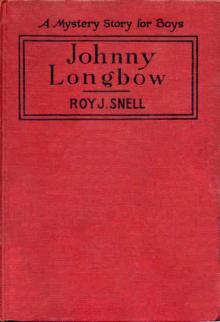 Johnny Longbow
Johnny Longbow Sally Scott of the WAVES
Sally Scott of the WAVES The Secret Mark
The Secret Mark Betty Leicester's Christmas
Betty Leicester's Christmas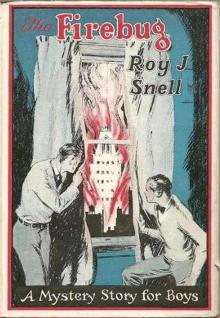 The Firebug
The Firebug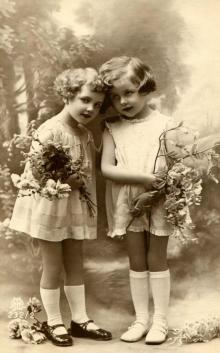 Minnie Brown; or, The Gentle Girl
Minnie Brown; or, The Gentle Girl Jack the Hunchback: A Story of Adventure on the Coast of Maine
Jack the Hunchback: A Story of Adventure on the Coast of Maine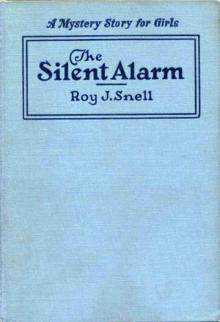 The Silent Alarm
The Silent Alarm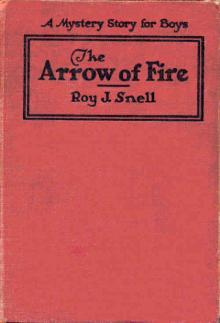 The Arrow of Fire
The Arrow of Fire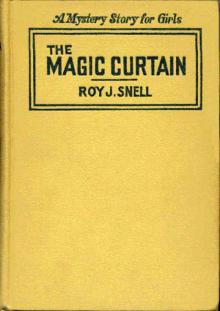 The Magic Curtain
The Magic Curtain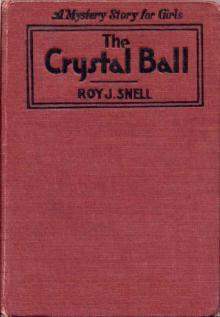 The Crystal Ball
The Crystal Ball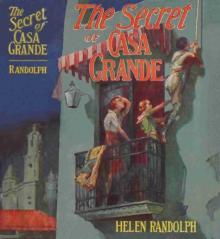 The Secret of Casa Grande
The Secret of Casa Grande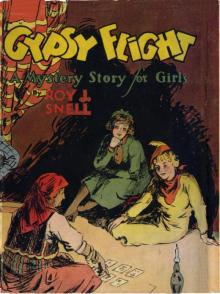 Gypsy Flight
Gypsy Flight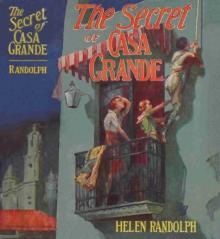 The Mystery of Carlitos
The Mystery of Carlitos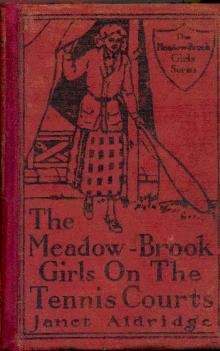 The Meadow-Brook Girls on the Tennis Courts; Or, Winning Out in the Big Tournament
The Meadow-Brook Girls on the Tennis Courts; Or, Winning Out in the Big Tournament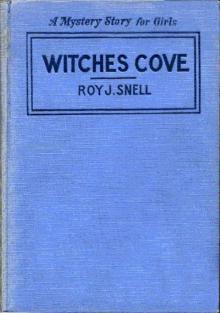 Witches Cove
Witches Cove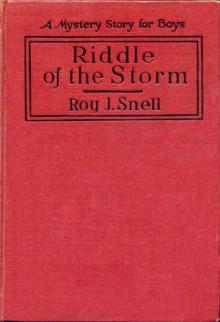 Riddle of the Storm
Riddle of the Storm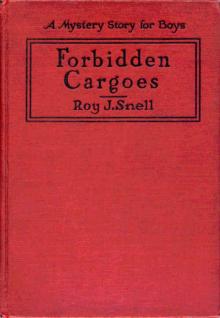 Forbidden Cargoes
Forbidden Cargoes Green Eyes
Green Eyes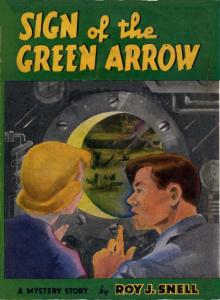 Sign of the Green Arrow
Sign of the Green Arrow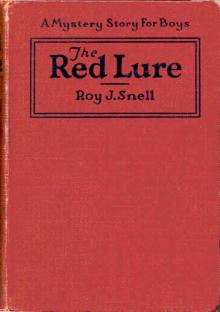 The Red Lure
The Red Lure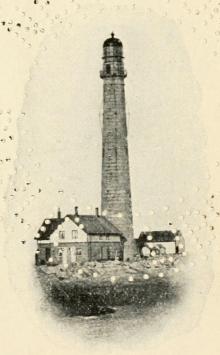 The Light Keepers: A Story of the United States Light-house Service
The Light Keepers: A Story of the United States Light-house Service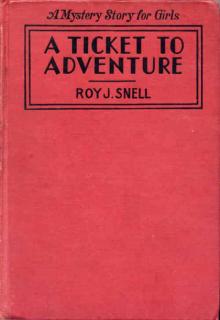 A Ticket to Adventure
A Ticket to Adventure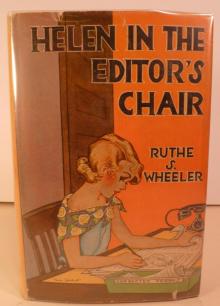 Helen in the Editor's Chair
Helen in the Editor's Chair Blue Envelope
Blue Envelope The Purple Flame
The Purple Flame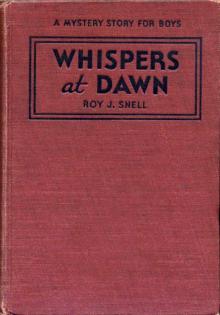 Whispers at Dawn; Or, The Eye
Whispers at Dawn; Or, The Eye The Rope of Gold
The Rope of Gold Crossed Trails in Mexico
Crossed Trails in Mexico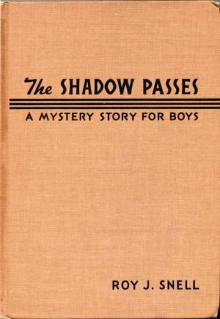 The Shadow Passes
The Shadow Passes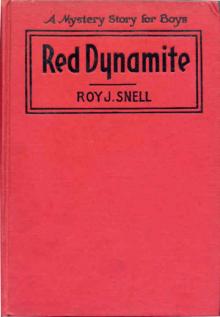 Red Dynamite
Red Dynamite Blue Grass Seminary Girls on the Water
Blue Grass Seminary Girls on the Water The Cruise of the O Moo
The Cruise of the O Moo